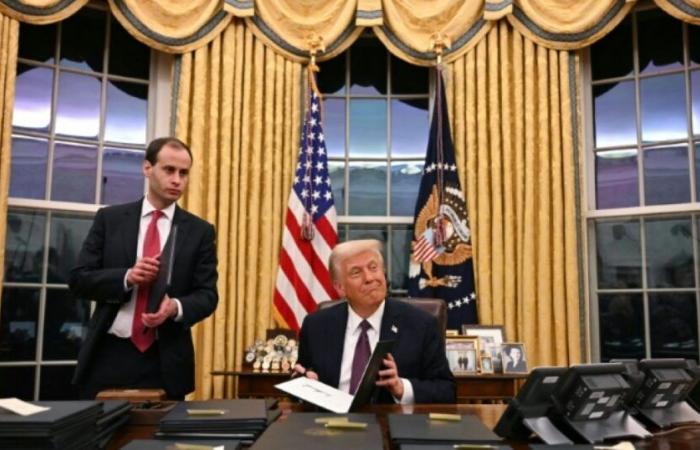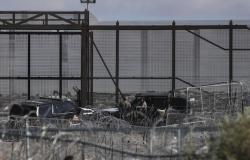Donald Trump motivates his promise to regain control of the Panama Canal by asserting that China “exploits” the sea route which connects the Pacific Ocean to the Atlantic. The reality is more nuanced.
During his inauguration, the new President of the United States did not exclude the military option to “recover” this 80 km long corridor built by the United States, inaugurated in 1914 and under Panamanian sovereignty for 25 years.
“The canal belongs and will continue to belong to Panama,” replied Panamanian President José Raul Mulino.
The interoceanic route, of which the United States and China are the main users, is administered by the Panama Canal Authority, an autonomous Panamanian entity.
– “Bottleneck” –
But a Chinese company, Hutchison Ports, operates under concession the ports of Balboa and Cristobal, at each entrance to the canal, on the Atlantic and Pacific sides.
In “times of conflict”, these ports could be used by Beijing “as a bottleneck that prevents international trade” through the canal, launched the American Secretary of State, Marco Rubio.
The Panamanian government announced on Tuesday an “exhaustive audit” of Panama Ports Company, a subsidiary of Hutchinson Ports, in order to “determine whether the concession agreements concluded (…) are respected, by verifying that the company correctly declares its income, payments and contributions to the State.
In a press release, the company indicated that it was “fully cooperating” with this procedure, ensuring that previous inspections had demonstrated compliance with its “contractual obligations”.
“There are reasonable concerns related to the presence of a Chinese company,” analyzes Benjamin Gedan, director of the Latin America program at the Wilson Center, based in Washington. “The canal has enormous value to the United States, both commercial and strategic, and it would not be difficult for Beijing to disrupt its operations.”
However, according to Rebecca Bill Chavez, president of the Interamerican Dialogue think tank, “China does not operate or control the Panama Canal”: the Central American country has “respected” the neutrality of the canal by maintaining “efficiency operations”.
Donald Trump, who declared that the United States “stupidly” ceded the interoceanic canal, believes that Panama is “a country that is ripping us off” and that American boats should pay less for passage.
-– Chinese investments –
“It is a fallacious argument which hides the desire for Panama to reduce its relations with China to their simplest expression,” Euclides Tapia, a Panamanian professor of international relations, told AFP.
Since Panama re-established diplomatic relations with Beijing in 2017, trade with China has increased significantly, although its main political and commercial partner remains the United States.
Chinese companies have helped build a cruise ship port at the entrance to the canal on the Pacific side and are involved in a $1.4 billion seaway bridge project.
During a visit by President Xi Jinping in 2018, Beijing proposed other projects worth hundreds of millions of dollars, even attempting to set up an embassy at the entrance to the canal, but this did not materialize due to alleged American pressure.
– Use of force –
Under the 1977 treaties, which led the United States to transfer the canal to Panama in 1999, Panamanians committed to ensuring that the route remained permanently open to all countries around the world.
“None of their principles mention, let alone authorize, the United States to recover or claim the Panama Canal,” Julio Yao, who was part of the Panamanian team that negotiated, told AFP. treaties.
But there are amendments introduced by the United States on the possibility that Washington uses armed force unilaterally “to defend the canal against any threat” of closure.
Only this reason “could justify the use of military force in Panama, and only to keep the canal open, not to seize it and exploit it economically”, notes Mr. Tapia.
That Donald Trump repeated his threats on Monday “makes it more likely that it is a serious statement,” notes Benjamin Gedan. The expert considers “a military intervention unlikely”, but emphasizes that the American government could use customs taxes to put pressure on Panama.






